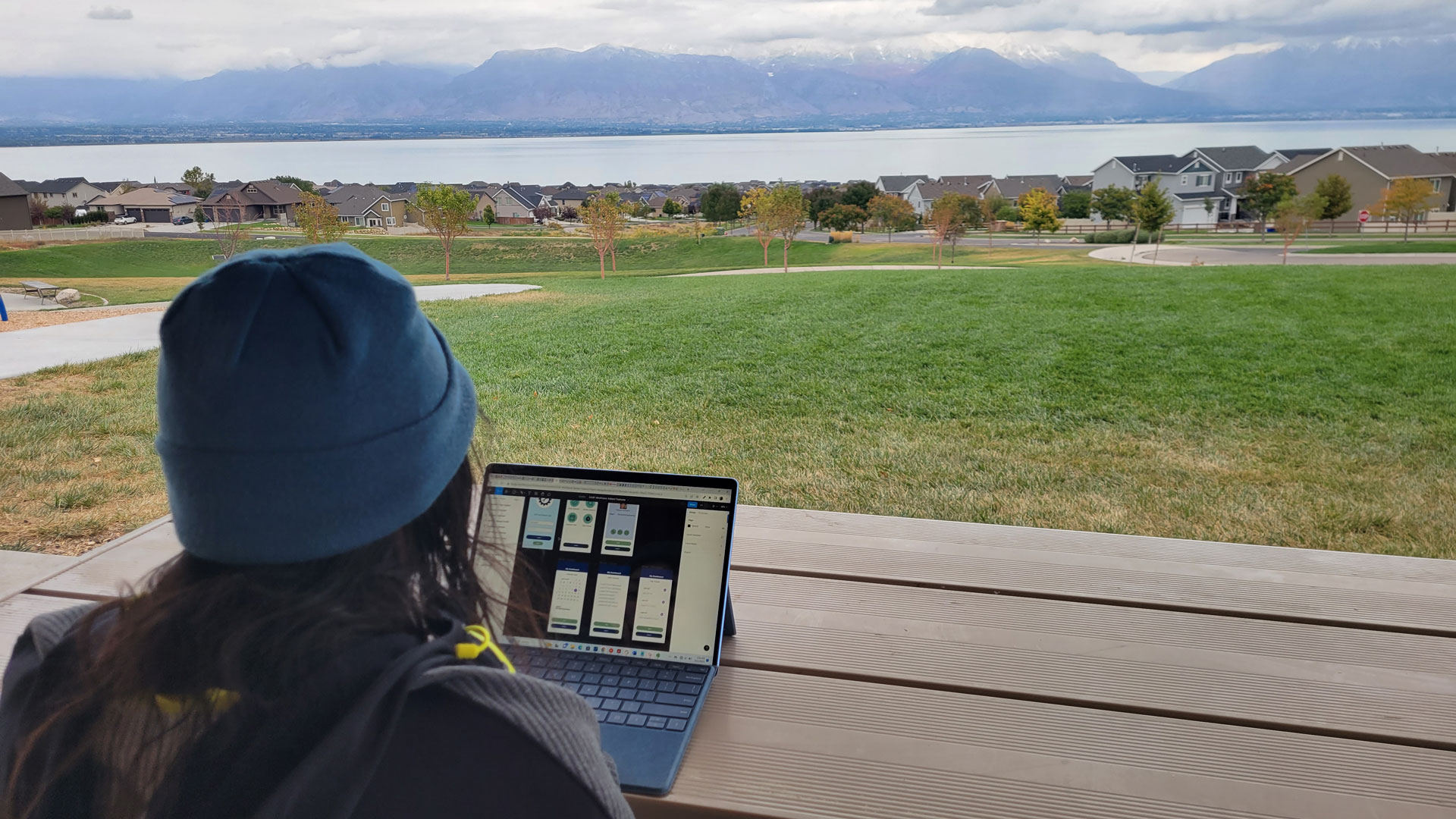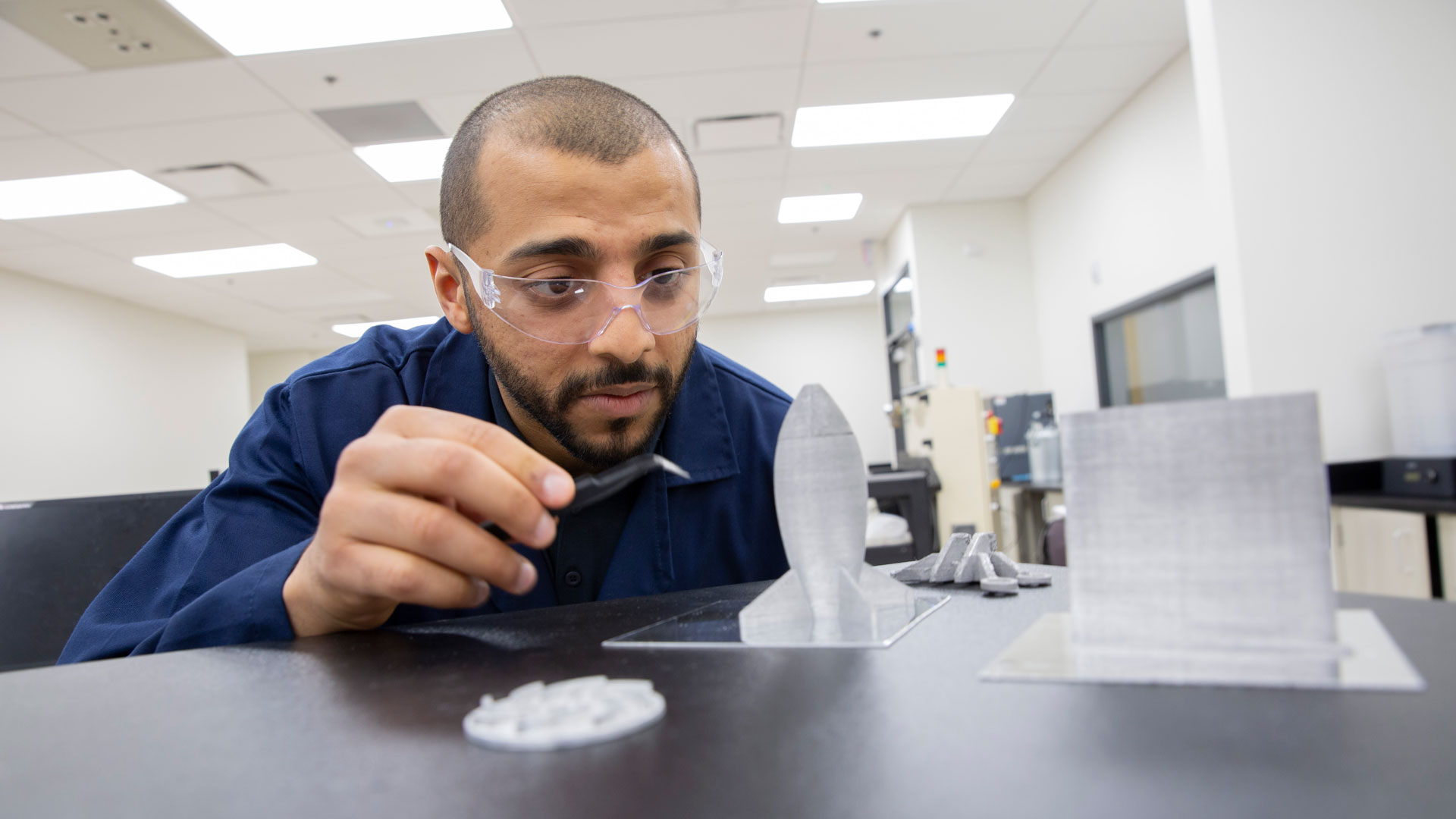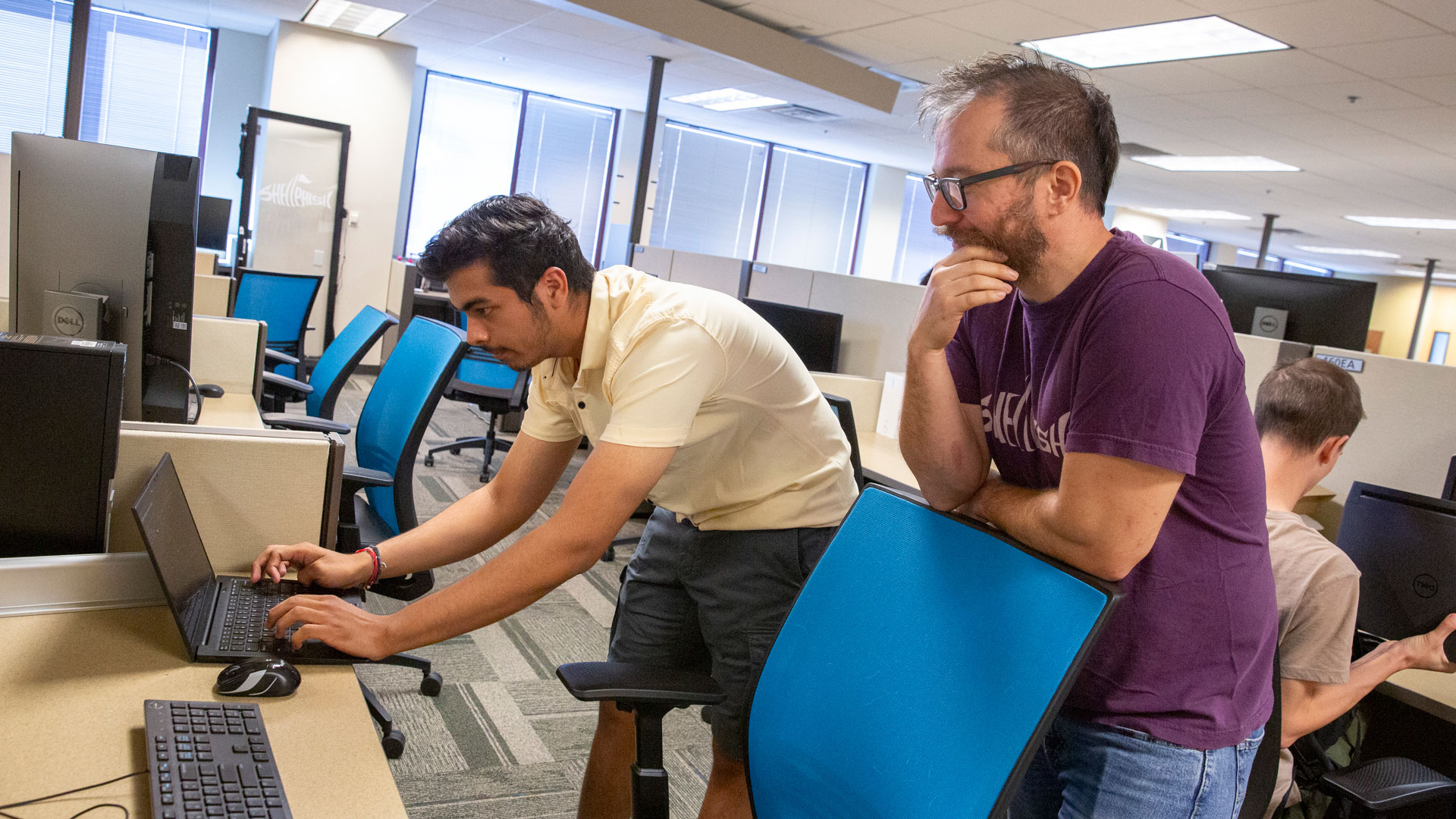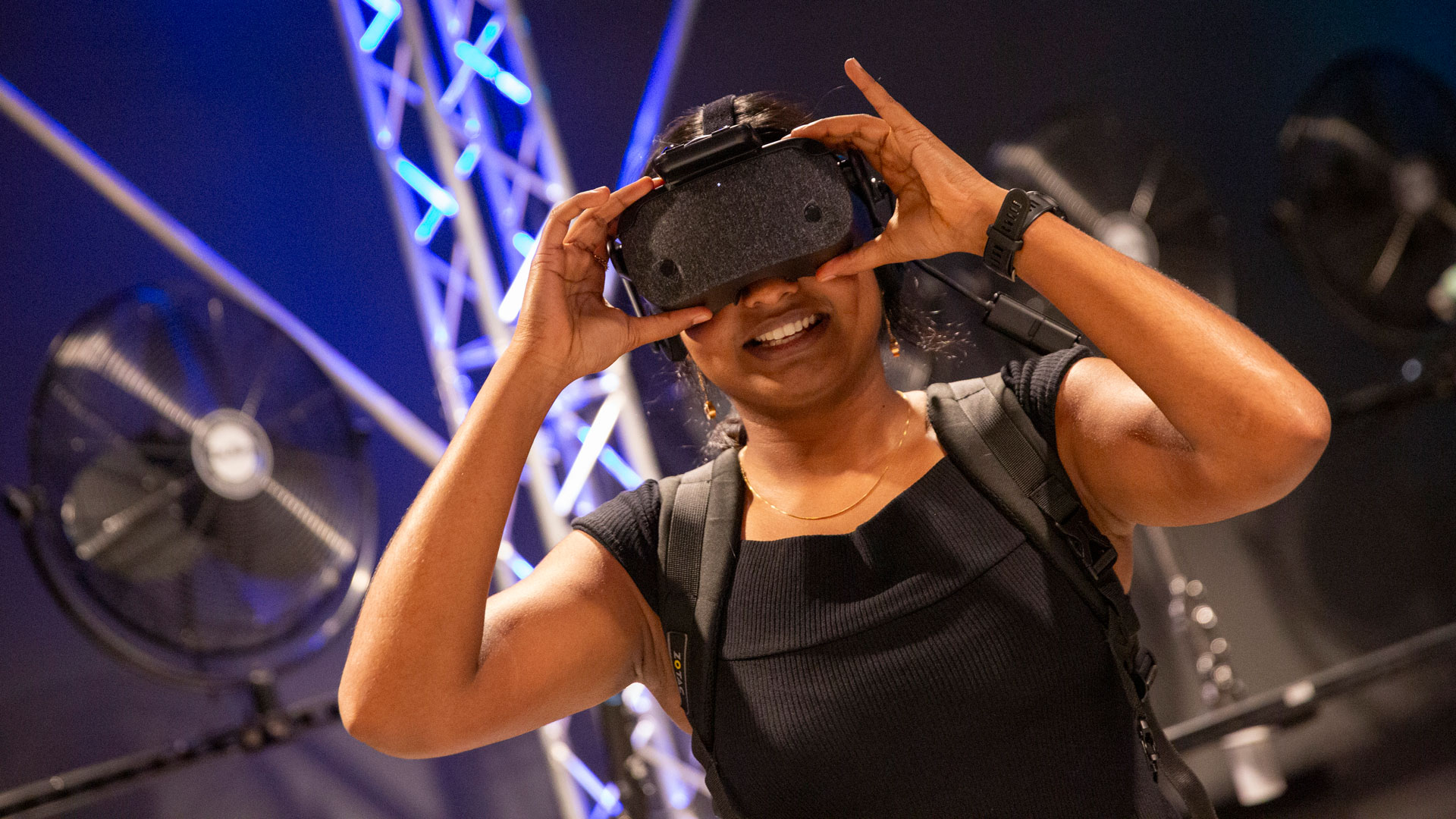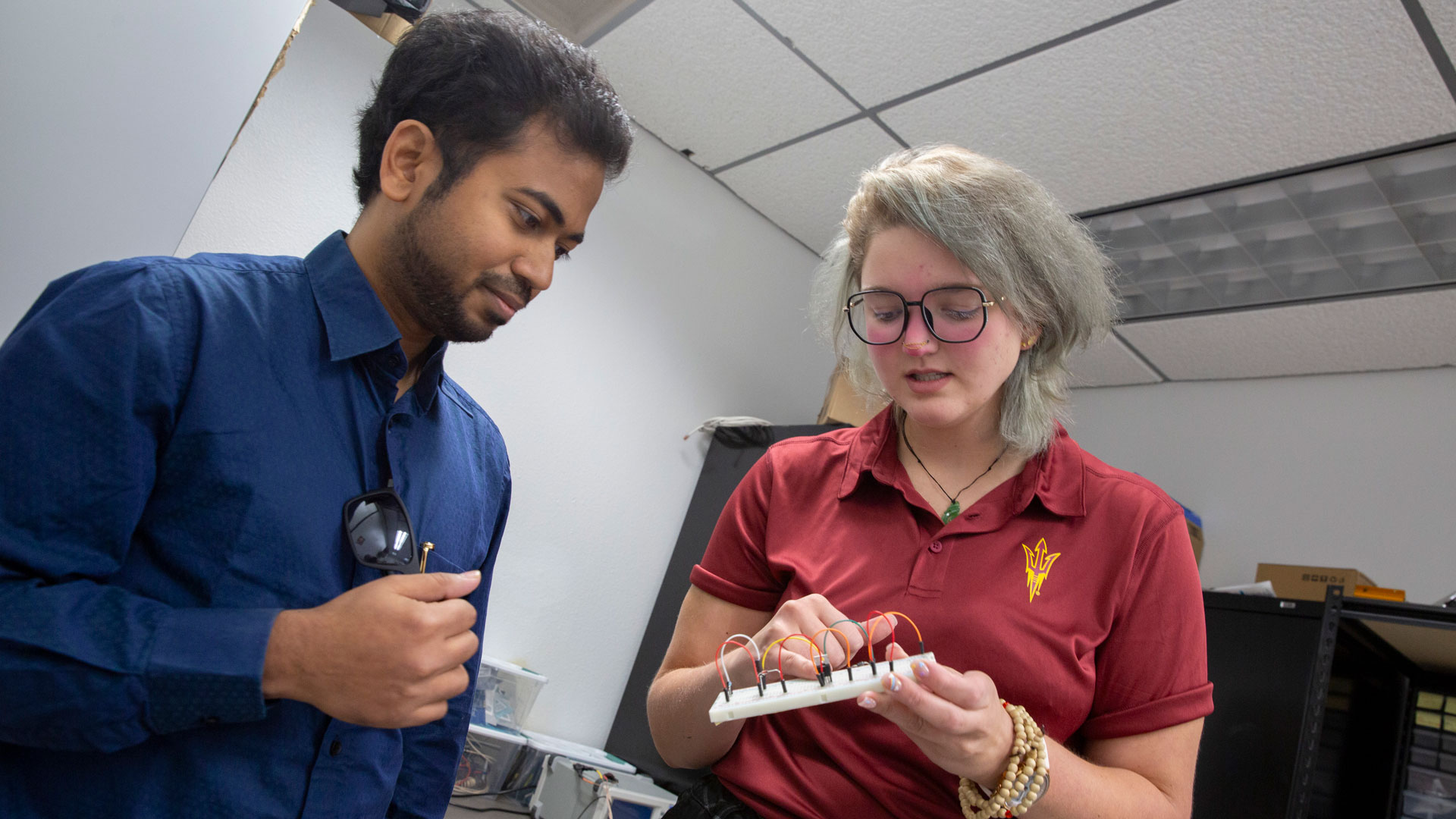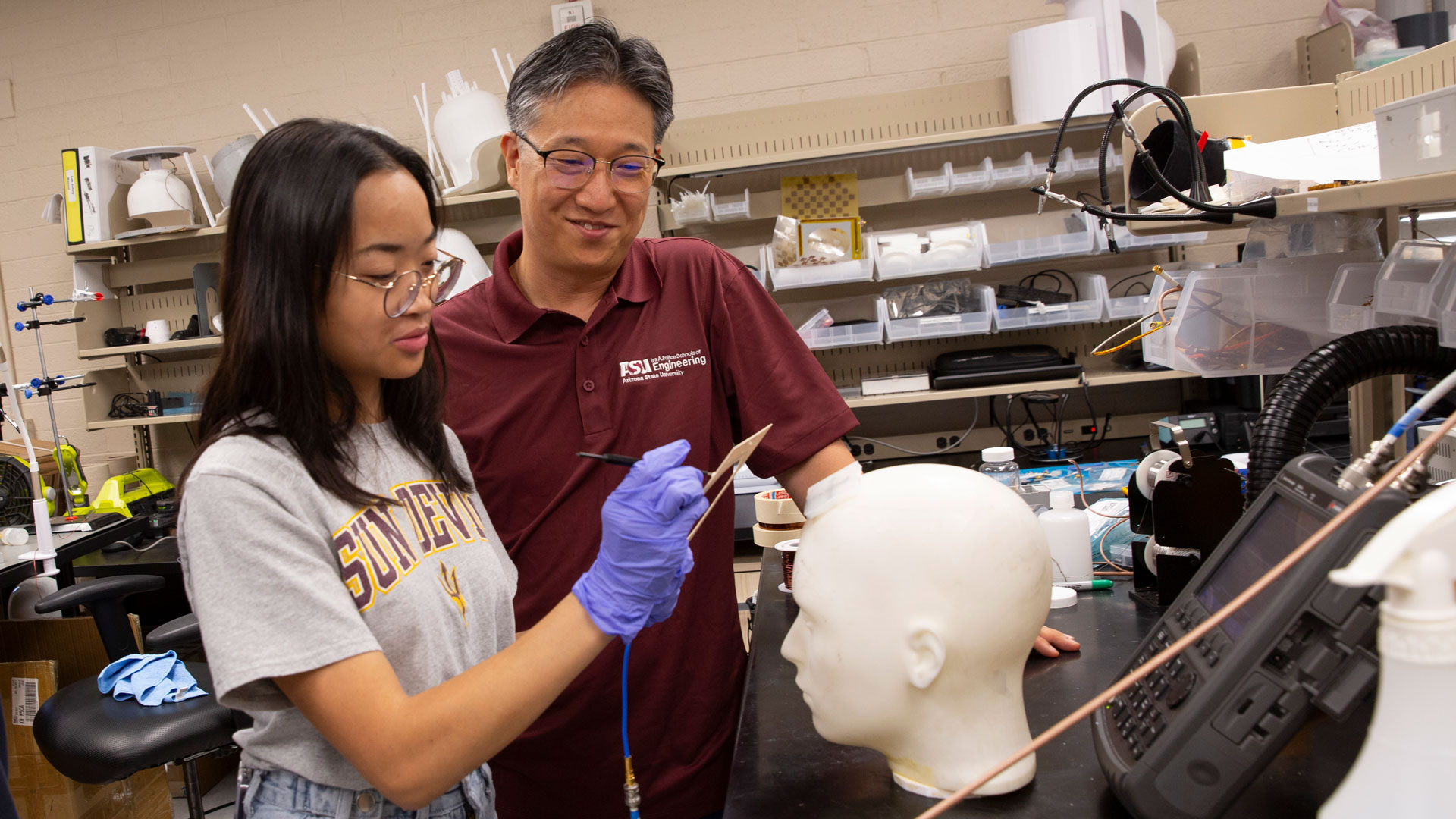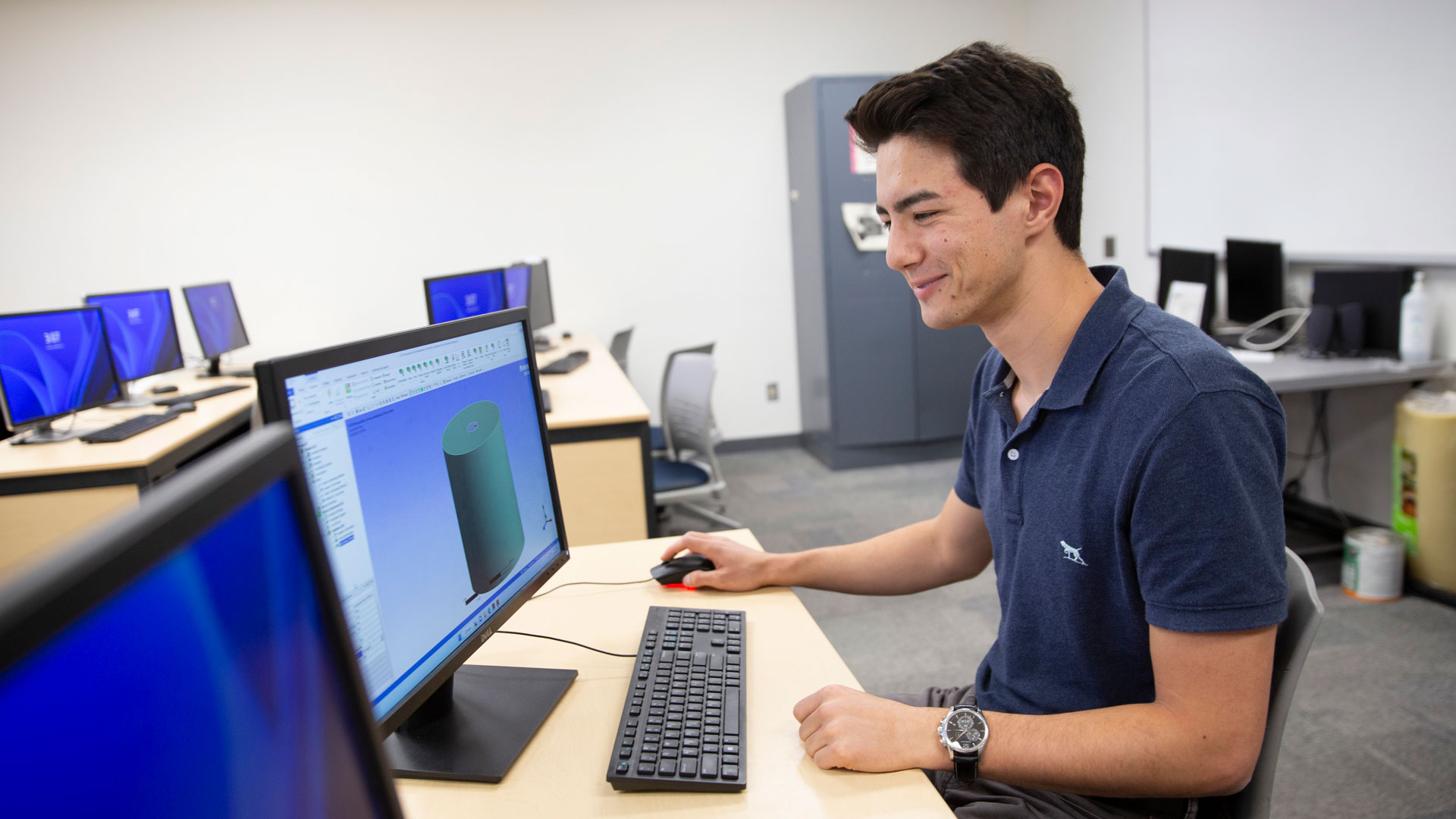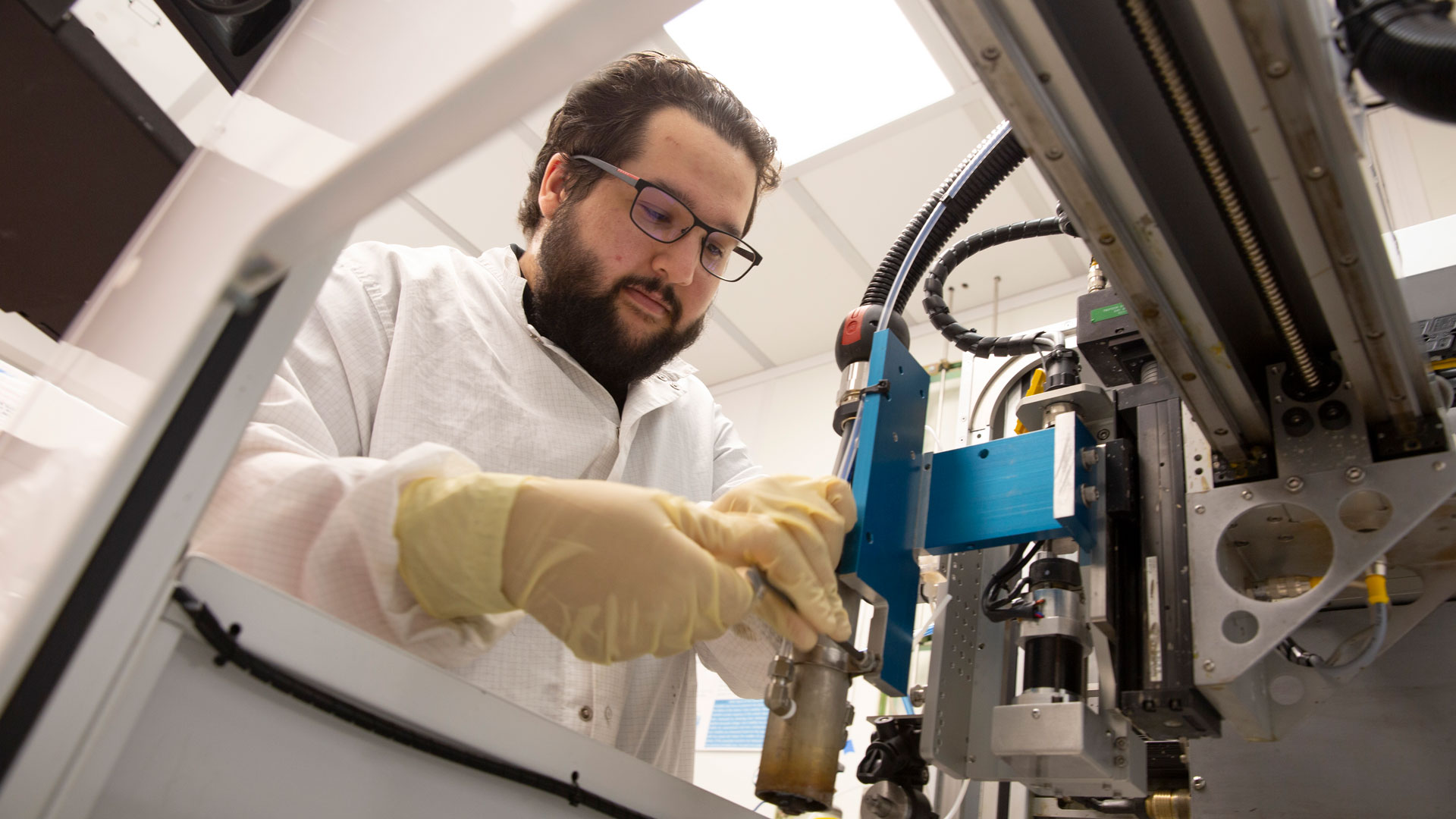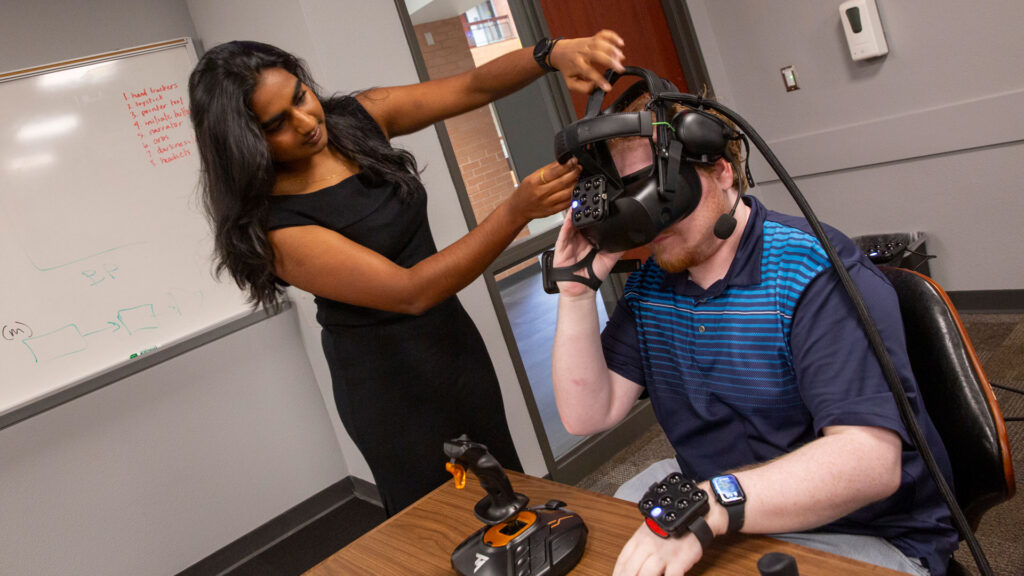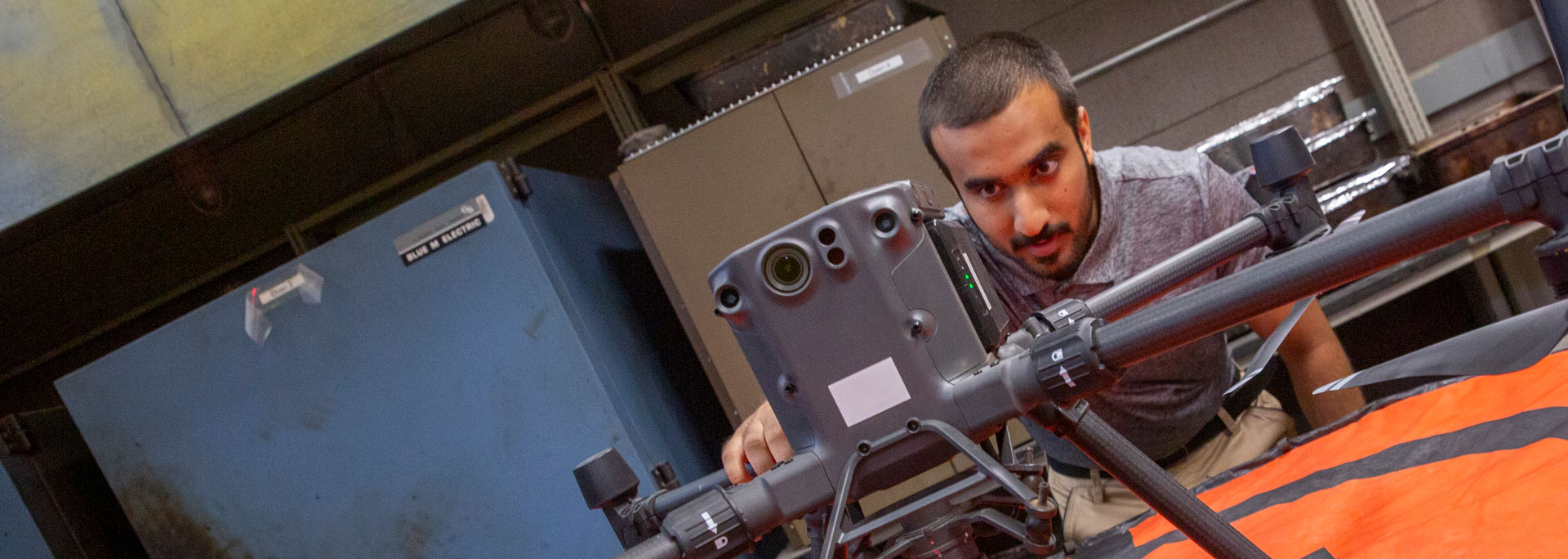
Forge new ideas
Thank you for joining us at the Fulton Forge Student Research Expo!
Forge: to form or make, especially by concentrated effort
The Fulton Forge Student Research Expo (formerly the FURI Symposium) is a public showcase of independent research performed by Fulton Schools undergraduate and graduate students.
Students who participate in our three primary research programs are invited to present their findings each semester at the Expo.
Fall 2023 featured projects
- Accessible Education Platform Development for the Employment Assistance & Social Engagement (EASE) Program by Crislana Rafael
- A study on Aluminum Voxels Characteristics Deposited by a New Metal 3D Printing Method by Mohammed Bawareth
- Dissecting Google’s AddressSanitizer (ASAN) by Vishal Juneja
- Immersive and Interactive Visualizations using Virtual Reality by Neha Balamurugan
- Kinetically Charged Batteries — Development and Optimization by Gwen Eging
- Design of a Thin and Stretchable Metamaterial Cap to Enhance MRI Image Quality by Ava Claire Lariego
- Finite Element Analysis of Atomic Force Microscopy Measurement of Heterogeneous Nodules Suspended in a Membrane with Application in the Semiconductor, Health, and Security Industries by Tyler Norkus
- Low-Temperature Reduction of Metal Oxide Semiconductors Using Open-Air Plasma by Jacob Burrows
Student research programs
A value of the Fulton Schools is to build a foundation for all to be successful. To prepare our students for success in an engineering or technical career, we provide undergraduate and graduate research opportunities. Each semester we invite student researchers participating in the following three programs to present their work at the Fulton Forge Student Research Expo.
Fulton Undergraduate Research Initiative (FURI)
The Fulton Undergraduate Research Initiative enhances an undergraduate student’s engineering experience and technical education by providing hands-on lab experience, independent and thesis-based research, and travel to national conferences.
Grand Challenges Scholars Program (GCSP) research stipend
The Fulton Schools Grand Challenges Scholars Program combines innovative curriculum and cutting-edge research experiences into an intellectual fusion that spans academic disciplines and includes entrepreneurial, global and service learning opportunities. Students funded by a GCSP research stipend conduct research in a grand challenges theme and are invited to present their findings at the Fulton Forge Student Research Expo.
Master’s Opportunity for Research in Engineering (MORE)
The Master’s Opportunity for Research in Engineering program is designed to enrich a graduate student’s engineering and technical graduate curriculum with hands-on lab experience and independent and thesis-based research.
Sponsored students
Some of our researchers get extra funding through grants, industry and alumni sponsors. To learn more about sponsorship, contact the Fulton Schools Development team.
TSMC
TSMC is a global leader in the semiconductor foundry business. The company’s industry-leading process technologies and portfolio of design enablement solutions help its customers and partners unleash semiconductor innovation. With its recent expansion into Phoenix, TSMC sees the benefit of a strong partnership with ASU faculty and student researchers. TSMC supports the FURI program by providing additional funding for exceptional research projects related to the semiconductor industry. FURI student researchers who pursue a project related to the Semiconductor Manufacturing research theme are eligible for this sponsorship. TSMC-supported FURI students receive a $2,600 stipend and $400 to use for materials. Exceptional research proposals that align with the research theme of Semiconductor Manufacturing will be considered for this additional funding.
W. L. Gore & Associates
W. L. Gore & Associates is a uniquely creative, product leadership enterprise that has served a variety of global markets for 60 years, and provides innovative solutions that its associates stand behind. Gore established funds to support undergraduate students in the Fulton Undergraduate Research Initiative program and graduate students in the Master’s Opportunity for Research in Engineering program, and values student-driven research and developing relationships with students in the programs.
Summer and Fall 2023 snapshot
In Summer and Fall 2023, 80 students participated in 97 individual research projects.
FURIprojects
FURImentors
MOREprojects
MOREmentors
GCSP research stipendprojects
GCSP research stipendmentors
Research themes
Students work on projects related to seven different themes that represent the Fulton Schools’ core research disciplines.
Data
In an increasingly digital world, data collection is growing at a rapid pace. Fulton Schools faculty and student researchers are devising innovative approaches and tools that will help us better process, analyze, use, manage and access data. New computational tools, algorithms and data analysis techniques, including hardware and software approaches, machine learning, data analytics, data-driven decision-making and more will help advance scientific discoveries and collaborations across multiple fields where data use and capture is ubiquitous.Education
We are engaged in advancing the ways we educate engineering students. The Fulton Schools’ research focuses on learning methods, cognitive theory and best teaching practices, as well as the integration of engineering concepts in K-12 educational programs to engage students early and educate our community about the impact engineering has on everyday life.Energy
The urgency to discover and deploy new forms of carbon-reducing energy technologies has become an indispensable part of our economic and environmental landscape. The Fulton Schools’ research in renewable and alternative energy sources is multifaceted with efforts in solar and photovoltaic energy, biotechnology, low- and high-power energy storage, power electronics, electric power systems, batteries and hydrogen fuel cells.Health
The Fulton Schools’ efforts in health innovation range from understanding the causes behind Alzheimer’s disease and improving methods for predicting epileptic seizures to developing advanced biosensors, bioassays and lab-on-a-chip devices for clinical diagnostics. Additional areas of research exist in novel biological materials, neural engineering, biomedical informatics, drug-delivery systems, health care systems analysis and modeling, health monitoring devices and human rehabilitation technologies.Security
As technology develops at a faster rate, there is a growing need to develop engineering systems to keep people and infrastructure secure, including securing cyberspace, developing secure communications, developing self-healing systems resilient to attack and identifying, monitoring and reducing threats. Fulton Schools researchers — faculty and students — are addressing issues of national defense, homeland security, border security, cyberwarfare and more, devising technology solutions as well as legal, policy and social implications.Sustainability
The central thrust behind sustainability is the capacity of metropolitan areas to grow and prosper without destroying or depleting natural resources. The Fulton Schools’ research focuses on restoring and improving urban infrastructure, access to clean water and air, advanced construction techniques and management, environmental fluid dynamics, transportation planning, as well as geotechnical and geoenvironmental engineering.Semiconductor Manuacturing
Semiconductor devices are part of our everyday lives and the demand for techniques and processes to promote them continues to grow. Fulton Schools researchers are driving innovation forward through advances in areas such as power electronics, wireless and mixed-signal circuit design, memory devices and architectures, solar energy and batteries, advanced packaging and new semiconductor materials. Expansive industry collaborations and unique facilities at ASU center Arizona as a hub for the American semiconductor revolution.Summer and Fall 2023 project count
Featured mentors
Fulton Schools faculty members guide students through the research process in their role as FURI and MORE research program mentors.
Masoud Yekani Fard, featured FURI mentor
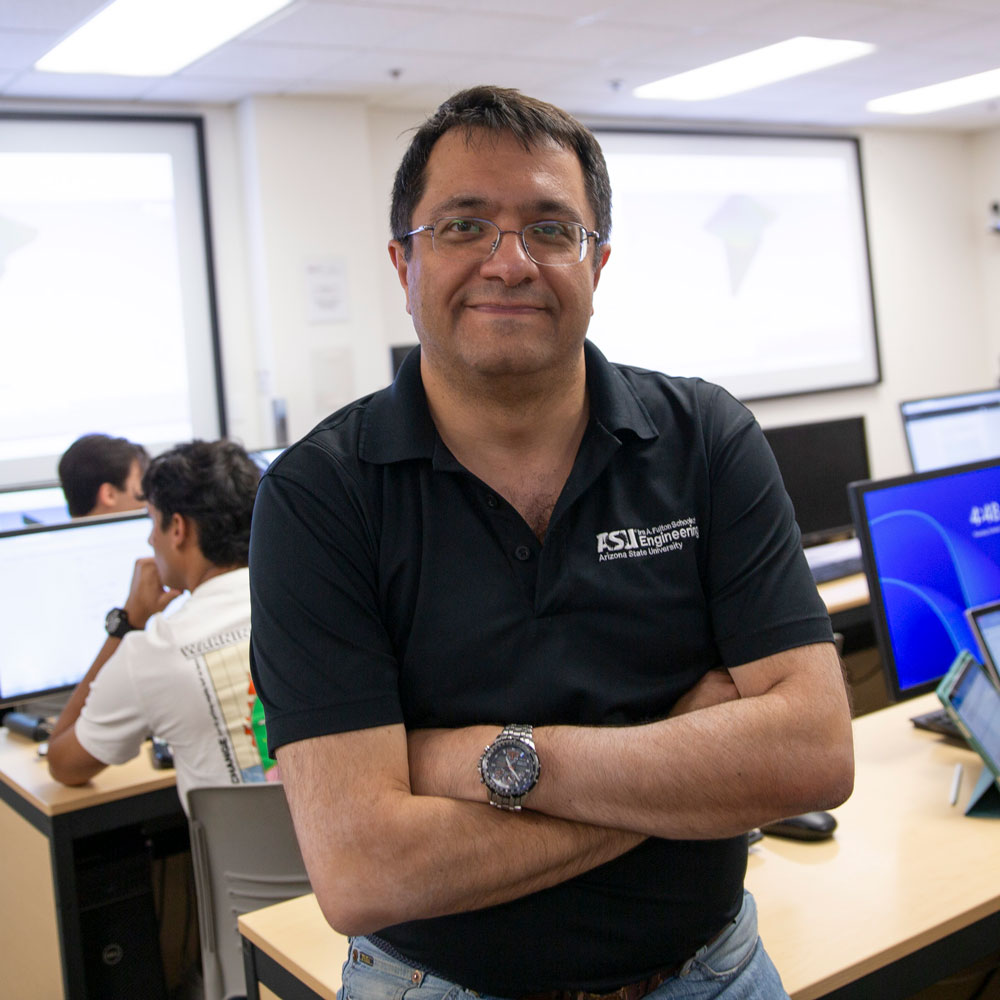
Masoud Yekani Fard is an assistant teaching professor of mechanical and aerospace engineering who has mentored more than 50 students in the FURI and MORE programs over the past several years. Fard’s research expertise is in solid mechanics, composite and nanocomposite materials, multifunctional materials and nanomembranes, atomic force microscopy, material characterization and modeling. Read more
Nakul Gopalan, featured MORE mentor
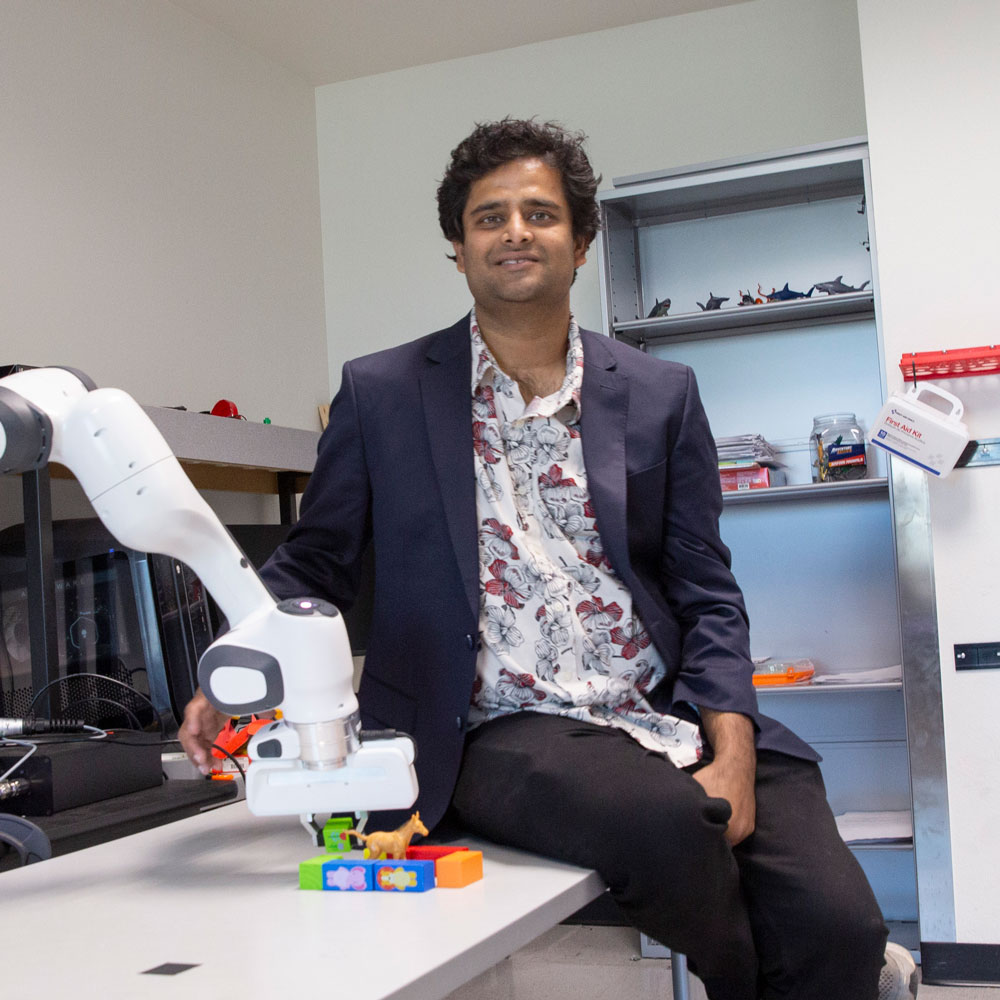
Nakul Gopalan is an assistant professor of computer science and engineering. His research interests lie in the intersection of language and robot learning, particularly how to train robots through natural language to improve their usability in homes and offices. Gopalan became a MORE faculty mentor in the fall of 2023. Read more
What FURI and MORE alumni are saying
Research opportunities like FURI and MORE help students build valuable skills, learn about themselves and succeed in their future endeavors. Learn more about what our FURI alumni go on to do after they finish the program
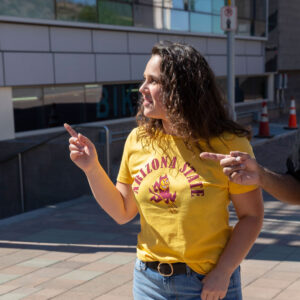
FURI gave me a glimpse into the work that I do now. My project was centered around travel demand forecasting and trip user modificated based on the introduction of high-speed rail on the West Coast. While I do not directly work on projects related to high-speed rail design and construction, the methodology, research methods and engineering judgement I developed during the project is very applicable to my daily tasks at work. I am thankful for the opportunity to work on my FURI project, which helped give me exposure to research, earn transferrable knowledge for my career and develop technical engineering skills.
Amanda MinutelloFURI Fall ’19, civil engineering Spring ’20, graduate traffic engineer at AECOM
FURI gave me experience with a self-led project where I got to set my own goals and schedule. This experience prepared me for working on a team where I’m given a task with little other guidance.
Daniel KosednarFURI Spring and Fall ’19, aerospace engineering, Fall ’21, conceptual design engineer at Lockheed Martin Advanced Development Programs
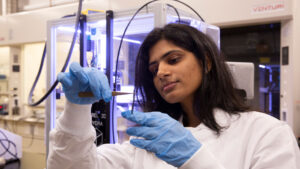
FURI gave me experience with a self-led project where I got to set my own goals and schedule. This experience prepared me for working on a team where I’m given a task with little other guidance.
Mounika KakarlaMORE Summer ’21, materials science and engineering Fall ’21, lithography process engineer at Intel
FURI and GCSP instilled in me the skills to research and understand the problem and come up with an innovative way to solve it. I started to understand in depth the core of the problem before providing a solution.
Kartik GuptaFURI Fall ’18, GCSP Fall ’19, computer science Fall ’20, software engineer at Salesforce
